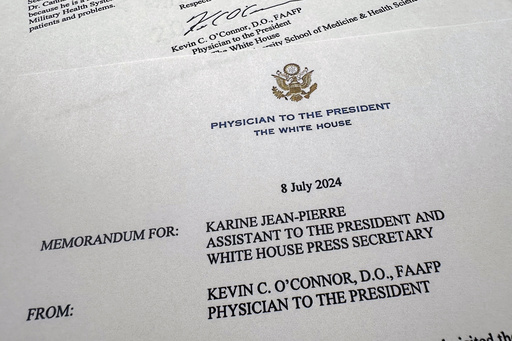In Washington politics, there is a new call for cognitive testing, with demands for President Joe Biden to undergo such testing after a poor debate performance. Despite these calls, Biden’s physician confirms he passes an annual neurologic exam. Former President Donald Trump, who is only slightly younger, also faces scrutiny for his cognitive abilities. Cognitive tests are brief tools that assess various brain functions, with two common ones being the MMSE and MoCA.
Cognitive screenings serve as indicators for the need of further testing rather than diagnosing health problems. They provide a benchmark to determine if additional testing is necessary. Individuals who score well on cognitive tests may still exhibit cognitive issues, which is why additional testing may be needed if concerns persist. It’s recommended that seniors undergo cognitive screenings annually to detect any changes.
Cognitive screenings differ from neurologic exams as they are simpler assessments usually done by primary care physicians. Neurologic exams are more detailed, involving physical examinations and tests of nerve function. If cognitive concerns are detected, the next step might involve neuropsychological testing which assesses specific brain functions through various tasks and tests. Blood tests and brain scans can also be used for further evaluation.
Normal aging can cause cognitive decline, leading to slower thinking and movement. Reversible health issues can sometimes mimic cognitive problems, such as infections or certain medications affecting memory. Anyone concerned about their memory should consult with a doctor or specialist for reassurance or to discuss a personalized treatment plan. It is important to differentiate between typical age-related changes and potential diseases affecting cognitive function.


